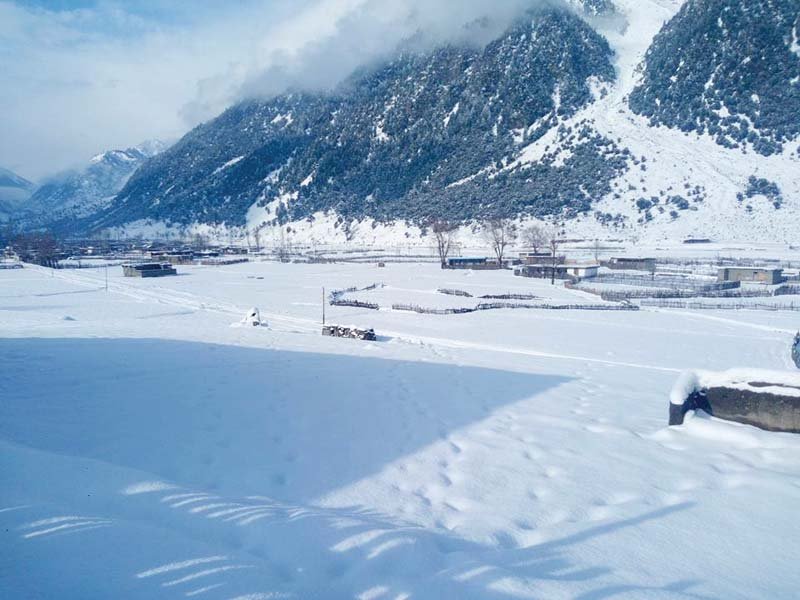Rapid Glacier Retreat Threatens Chilas Region
The rapid retreat of glaciers in the Chilas region poses a significant threat to the region's ecological balance, with millions of people relying on glacier-fed irrigation for farming and clean water. The PMD's warning of impending GLOFs and flash floods highlights the need for urgent action to mitigate the effects of climate change and protect vulnerable communities.

Glaciers in Pakistan's Swat Valley are rapidly retreating due to global warming, posing a significant threat to the region's ecological balance and affecting the livelihoods of villagers who rely on glacier-fed irrigation for farming. The melting of glaciers is causing unpredictable flooding and droughts, with environmental expert Dr. Shafiqur Rehman warning of impending ecological, social, and economic consequences.
Pakistan hosts over 7,253 glaciers, which supply clean water to millions and sustain the region's fragile ecosystem. The Himalayan region is warming faster than the global average, with some glaciers losing up to five meters in thickness each year, upsetting the natural balance of water storage and release. The Pakistan Meteorological Department (PMD) reported new extreme maximum temperature records in Gilgit-Baltistan's Chilas and Bunji areas, with Chilas recording a temperature of 48.5°C, breaking the previous record of 47.7°C set on July 17, 1997.
The PMD warned that the persistent high temperatures may accelerate snow and glacier melt, triggering Glof (glacial lake outburst flood) and flash floods in vulnerable valleys. Over 7.1 million people in Gilgit Baltistan and KP are vulnerable to Glof, with the Khyber Pakhtunkhwa Provincial Disaster Management Authority (PDMA) issuing an advisory to the administrations of five districts, warning of a high risk of Glofs due to rising temperatures and an upcoming weather system.
The Pakistan Meteorological Department (PMD) has issued a warning about the risk of Glacial Lake Outburst Floods (GLOFs) in Gilgit-Baltistan and Khyber Pakhtunkhwa due to glacier melting caused by an ongoing heatwave. Rising temperatures and an incoming weather system may lead to flash floods in northern valleys, causing sudden glacial lake bursts and GLOF incidents, and the PMD has urged residents and authorities to stay on high alert and take preventive measures to reduce the risk of disaster.